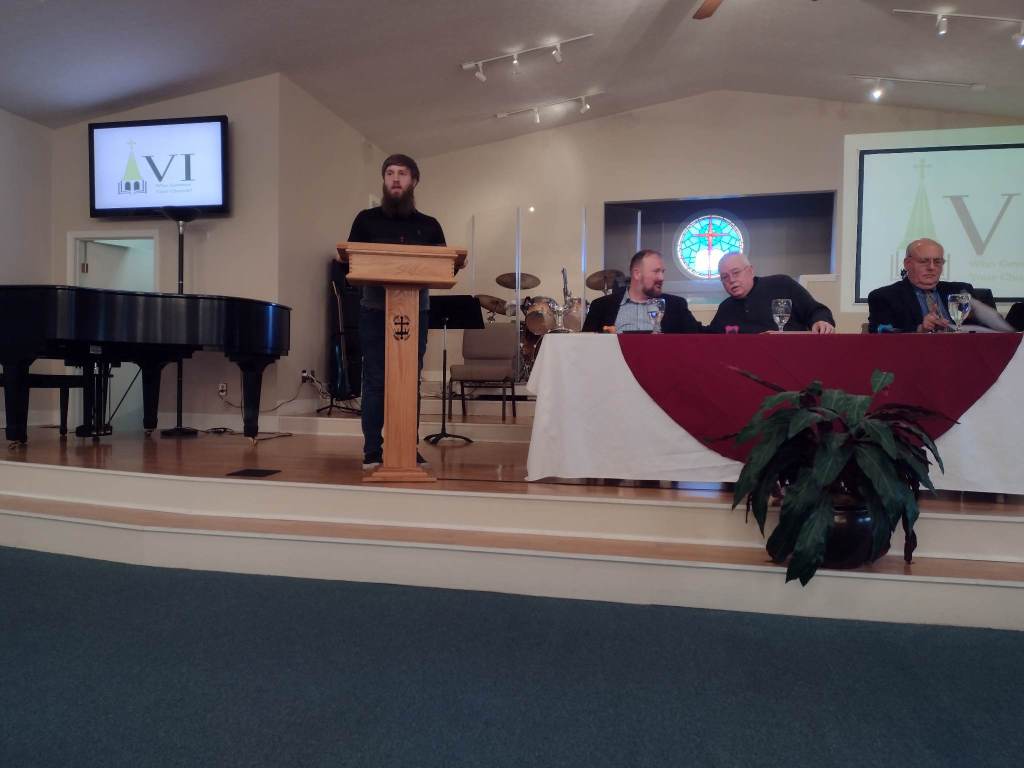TCID VI
March 25th, 2023
Participants
Pastor Joseph Spurgeon, Presbyterian Panelist
Fr. Jim Curry, Anglican Panelist
Pastor Tom Elbert, Lutheran Panelist
Pastor Russell Patton, Speaker

Question 01
As members of Christ’s body, we believe that God, in sending His only-begotten Son, wrought a plan for our salvation. We likewise proclaim that the Almighty accomplished all righteousness by giving up this Son to suffer upon a cross. Indeed, It was crucial that Jesus “himself bore our sins in his body on the tree (1 Peter 2:24), but the efficacy of Christ’s salvific work, we must admit, does not stem solely from His crucification and death. According to the Scriptures, Jesus’ resurrection was yet another significant event pertinent to God’s redemptive plan; a living savior is nothing short of being central to the Gospel. How then must we interpret this doctrine, the Bible’s teaching on Christ’s resurrection? Was our Messiah’s body truly resurrected, or was His soul that which was awakened from the grave, continuing to exist following His bodily death? If the resurrection was purely spiritual, how do we account for the empty tomb of Jesus? Did Christ’s disciples somehow remove His body without being noticed? On the other hand, if we should affirm a bodily resurrection, when did such an event take place, and why is it significant? Did Jesus assume a new body when He was recalled to life or did He arise in His original flesh? If original, did this body—that of the Holy one—ever see corruption? Lastly, what hope does Christ’s resurrection give to those who have faith in Him?
Question 02
Christ, our risen Lord, is the head of His church, and the very foundation upon which its government rests. This, all churches affirm, but what are our beliefs concerning the governing structures which reside under Christ’s headship? How many perpetual offices, or orders of ministers, did the Lord appoint for the edification of His church? Are all, or some, of the appellations of presbyter, elder, pastor, priest, and bishop synonymous, or do they each designate distinct roles of authority exercised among the Body of Christ? Further, should certain elected bodies, or individual overseers—such as assemblies of presbyters, or bishops—act as multi-church governors, presiding over many particular congregations, or is it more fitting for individual churches to be completely self governed? If the former, what is the hierarchy of government in your denomination? If the latter, who exercises Christ’s authority and rule in the local church? Is it possible for self-governed churches to commune with other bodies of believers? If so, may one particular congregation or association of churches exert authority over another? Concerning the sacraments of baptism and Communion, which offices are authorized to perform them? Who, or what, has the authority to ordain ministers of the Word? Should matters of censure and church discipline be dealt with exclusively on a local level, or must external church-governors such as bishops, primates, and presbyters carry out this responsibility? Finally, what roles do Scripture and tradition play in the formulation of church government, and how significant is the concept of apostolic succession to the transmission of authority in Christ’s church?